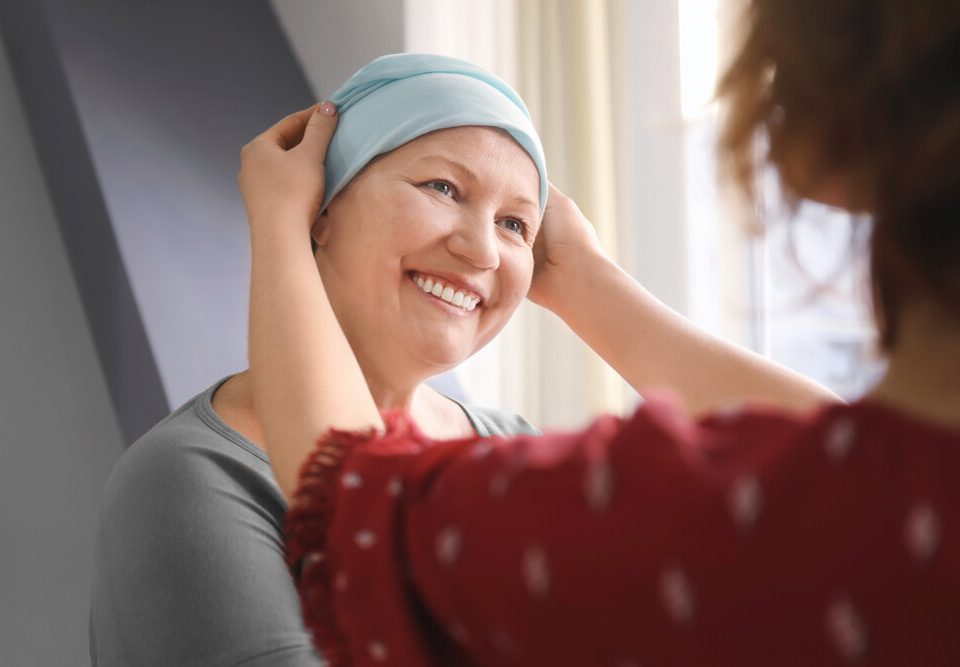Talking with Your Loved Ones About Cancer

Getting diagnosed with cancer can be an overwhelming, confusing, and remarkably difficult experience, and that extends both to you as a cancer patient and to family, friends, and even colleagues. As a new cancer patient, one of the most unexpectedly difficult parts of the cancer treatment process is often talking with loved ones about it. Both you and your loved ones may experience a wide variety of feelings and emotions, and it can be hard to navigate these in conversations about your cancer. The first step, though, is to acknowledge your own feelings.
Acknowledging Your Own Responses
Every patient is different, and a cancer diagnosis will affect everyone differently. It’s normal to feel intense sadness, anger, or fear, and many patients wonder why they, of all people, developed cancer. Sometimes, the treatment process brings on physiological changes in your body and brain that can affect how you feel. There’s one thing to remember about all of these feelings and responses: all of them are ok. No matter how you’re feeling about your cancer diagnosis, it’s important to acknowledge that those feelings are completely valid, and any emotional response is acceptable. Everyone goes through the process differently. And when communicating with loved ones about your condition, it’s important to start from an understanding of your own needs and emotional state.
Talking with Loved Ones
Once you’ve begun to process your own emotions, you’ll likely want to talk to others about your diagnosis. This process looks different for everyone, and the conversations you have with your loved ones will look different with every person. Often, new cancer patients start by telling the people closest to them in their lives – their spouse or significant other, immediate family, and sometimes close friends or coworkers – before telling more distant relationships. You may find it helpful to start the process by only talking to who you feel most comfortable with, then moving on to have the dialogue with more distant relationships.
When you first tell them you have cancer, many friends or family members may feel overwhelmed by a variety of emotions. Some people may get very sad or uncomfortable and feel frightened at the idea of losing you. Others may try to support you by remaining cheerful and acting normal. Often, your loved ones won’t know what to do to help you – and that’s ok.
While it may be difficult, it can often be helpful to communicate both your feelings and your needs to your loved ones when discussing your cancer. If you’re comfortable with the person, you may want to tell them about the emotions you’re experiencing and also talk about the help you may need in the future as your treatment progresses. In these conversations, it’s important to respect your own feelings about the diagnosis. Don’t be afraid to explicitly tell your loved ones how you want to be supported – while it may seem “bossy” or “needy,” many people don’t know how to support you and are glad to hear your perspective.
Schedule an Appointment with Your Phoenix, CA Cancer Treatment Center
Above all, the important thing to remember about the cancer treatment process is that it’s different for everyone. You may have any number of emotions in response to your cancer diagnosis, and it’s important to give yourself space for those feelings and acknowledge that they’re normal, valid, human reactions. If you’ve recently been diagnosed with cancer and are now seeking treatment, the Phoenix CyberKnife & Radiation Oncology Center would be thrilled to help. We proudly provide world-class cancer treatment services including the revolutionary CyberKnife system, and we are happy to provide second opinions even when you’ve already been given a prognosis. Call us today at (602) 441-3845 to learn more about our services and how we can support you throughout the treatment process, and remember: while the process of healing can be difficult, you’re never alone – and there’s always hope.


